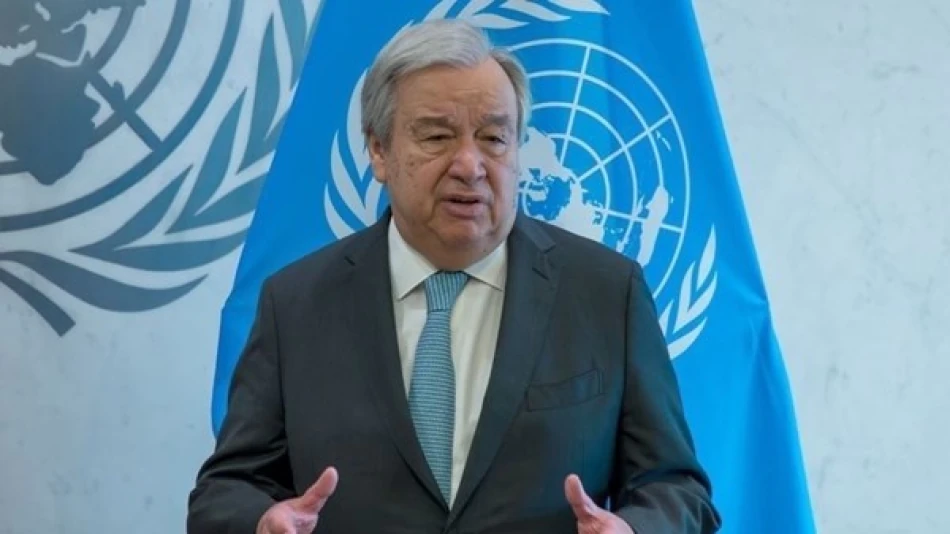
UN Chief Warns of Catastrophic Climate Change if Global Warming Exceeds 1.5°C Threshold
UN Secretary-General António Guterres admitted Wednesday that the world will inevitably fail to keep global warming under 1.5 degrees Celsius above pre-industrial levels in the coming years. His frank assessment comes just one month before the COP30 climate summit in Brazil, marking a sobering reality check for international climate efforts.
Speaking to the World Meteorological Organization in Geneva, Guterres said "one thing is clear: we will not be able to contain global warming to stay below 1.5 degrees in the next few years." He emphasized that crossing this threshold "has become unavoidable."
This 1.5-degree limit represents the most ambitious target of the 2015 Paris Climate Agreement. The goal was set as a critical benchmark to prevent the worst impacts of climate change, but it's proving increasingly difficult to achieve.
Most climate scientists now agree we'll likely hit this threshold before 2030. The reason is simple: the world keeps burning more oil, gas, and coal despite years of climate commitments. According to Europe's Copernicus Climate Change Service, current global temperatures are already 1.4 degrees Celsius higher on average compared to pre-industrial times (1850-1900).
But here's why scientists stress that every fraction of a degree still matters. Each additional increment of warming makes the risks worse - more intense heat waves, greater destruction of marine ecosystems, and more frequent extreme weather events.
For investors and policymakers, Guterres's admission signals that adaptation strategies will become just as important as emission reduction efforts. Countries and companies will need to prepare for climate impacts that are now considered inevitable, rather than just focusing on prevention.
The timing of this statement is significant. With COP30 approaching, negotiators will likely face pressure to set more realistic interim targets while maintaining long-term ambitions. The challenge now is preventing warming from going much higher than 1.5 degrees, even if that initial threshold gets crossed.
This shift in expectations could reshape climate finance and policy priorities. Instead of just funding emission cuts, there may be greater emphasis on helping vulnerable regions adapt to higher temperatures and more severe weather patterns.
Most Viewed News

 Layla Al Mansoori
Layla Al Mansoori






